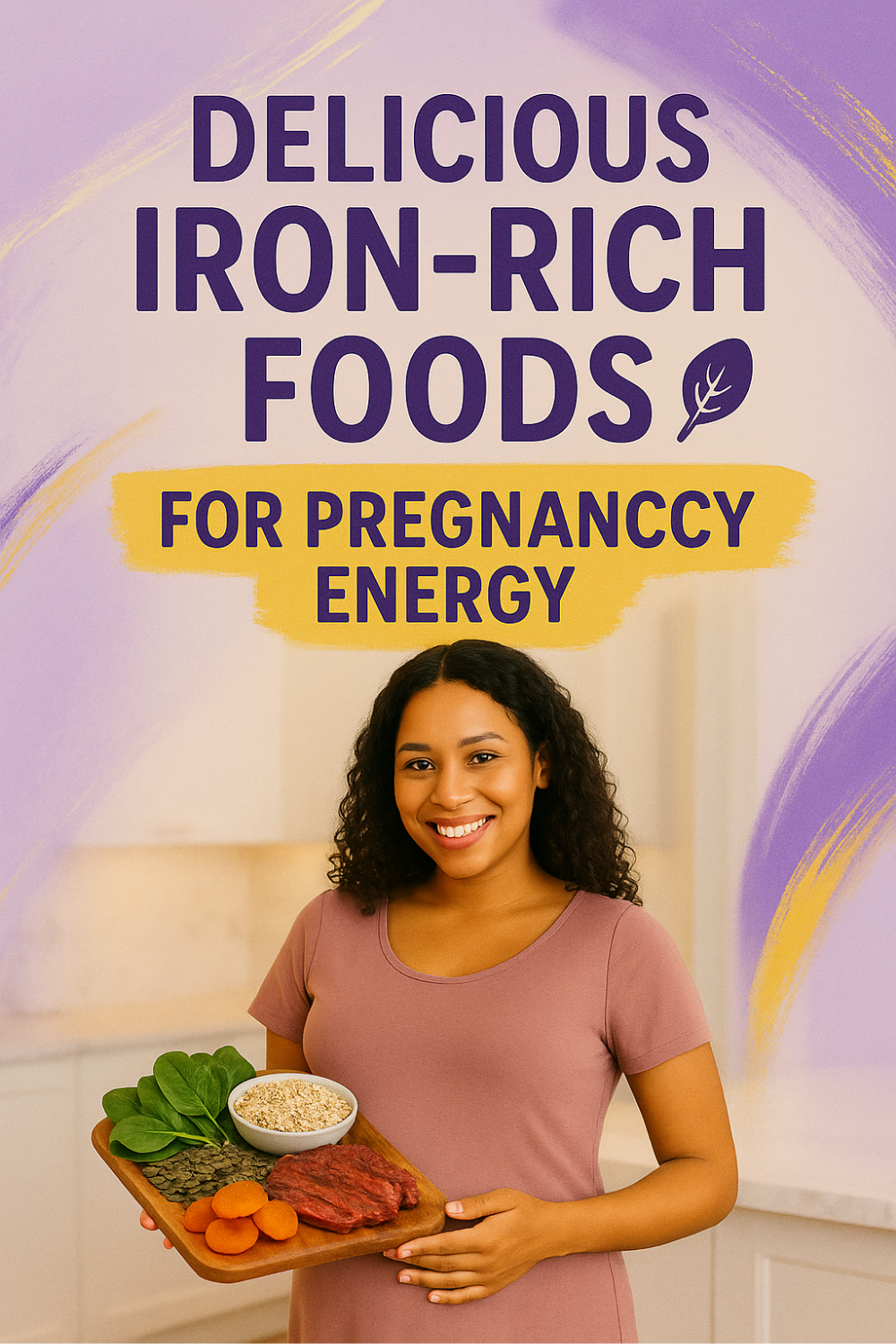Struggling with fatigue or dizziness during pregnancy? Boosting your iron intake through nutritious, iron-rich foods is essential for maintaining energy, supporting fetal development, and preventing anemia. Incorporating iron-rich foods into your diet doesn’t have to be complicated or bland. Ready to discover delicious, pregnancy-safe foods packed with iron? Let’s explore the best options to nourish you and your growing baby effectively.

- Why Iron Matters in Pregnancy
- Best Animal-Based Iron Sources
- Delicious Plant-Based Iron Sources
- Enhancing Iron Absorption Naturally
- Easy Iron-Rich Meals and Snacks
- Safe Iron Supplementation Tips
- Iron Intake Mistakes to Avoid During Pregnancy
Why Iron Matters in Pregnancy
During pregnancy, your blood volume increases significantly, requiring more iron to produce extra hemoglobin—the protein transporting oxygen to your baby. Without sufficient iron, you may experience fatigue, weakness, and an increased risk of anemia.
Iron deficiency in pregnancy can lead to complications, including preterm birth, low birth weight, and developmental delays. Ensuring adequate iron intake supports your baby’s growth, maintains your energy levels, and promotes overall pregnancy health.
Best Animal-Based Iron Sources
Animal-based (heme) iron is easily absorbed and highly beneficial during pregnancy. Here are the best animal-based iron-rich foods:
- Lean Red Meat
Beef and lamb are excellent sources of highly absorbable iron, protein, and B vitamins necessary for fetal growth. - Poultry (Chicken & Turkey)
Poultry, especially darker meat like thighs, provides significant iron and protein with less saturated fat compared to red meat. - Fish and Seafood
Salmon, sardines, and shrimp offer iron plus omega-3 fatty acids, vital for your baby’s brain development. - Eggs
Eggs are rich in iron, protein, choline, and vitamins essential for a healthy pregnancy.
Consuming these foods 2–3 times weekly significantly boosts your iron levels naturally.
Delicious Plant-Based Iron Sources
Vegetarian or plant-based iron sources (non-heme) are nutritious and beneficial. Incorporate these tasty iron-rich options:
- Legumes and Beans
Lentils, chickpeas, kidney beans, and soybeans offer substantial iron, protein, and fiber, aiding digestion and energy. - Leafy Greens
Spinach, kale, Swiss chard, and collard greens are packed with iron, folate, and vitamins necessary for fetal development. - Fortified Cereals and Oats
Iron-enriched cereals, oats, and whole-grain products provide convenient iron intake with added fiber. - Nuts and Seeds
Almonds, cashews, sunflower seeds, and pumpkin seeds deliver iron and healthy fats crucial during pregnancy.
Regularly including these foods significantly enhances your daily iron intake, especially when consumed with vitamin C-rich foods.
Enhancing Iron Absorption Naturally
Boost iron absorption by pairing iron-rich foods with vitamin C sources:
- Citrus Fruits: Oranges, lemons, grapefruits significantly improve iron absorption.
- Tomatoes & Bell Peppers: Rich in vitamin C, perfect for salads and snacks.
- Berries: Strawberries, blueberries, and raspberries enhance iron uptake deliciously.
- Broccoli & Brussels Sprouts: Vitamin C-rich veggies perfect as side dishes with iron-rich meals.
Regularly combining iron-rich foods with vitamin C ensures optimal nutrient absorption and effectiveness.
Easy Iron-Rich Meals and Snacks
Creating tasty, iron-rich meals is easy and enjoyable:
Breakfast:
- Oatmeal with berries and almonds (high iron and vitamin C).
- Scrambled eggs with spinach and whole-grain toast.
Lunch:
- Lentil soup paired with citrus fruits.
- Chicken salad with leafy greens, chickpeas, and sliced bell peppers.
Dinner:
- Grilled salmon with steamed broccoli and quinoa.
- Lean beef stir-fry with vegetables and brown rice.
Snacks:
- Trail mix with nuts, seeds, and dried fruit.
- Hummus with bell pepper slices or carrot sticks.
These meals effortlessly boost your iron intake, ensuring better energy and health during pregnancy.
Safe Iron Supplementation Tips
Sometimes dietary intake alone may not suffice, requiring iron supplementation. Here’s how to safely supplement iron:
- Consult Your Doctor First: Always discuss supplements with your healthcare provider to ensure safety and appropriate dosage.
- Take With Vitamin C: Enhance absorption by taking iron supplements with vitamin C-rich juices or fruits.
- Avoid Taking with Calcium or Antacids: Calcium can interfere with iron absorption; wait 2 hours between taking these supplements.
- Watch for Side Effects: If supplements cause constipation or nausea, discuss adjusting the dosage or formulation with your healthcare provider.
Proper supplementation maintains your iron levels safely, protecting your health and your baby’s growth.
Iron Intake Mistakes to Avoid During Pregnancy
Avoid common pitfalls that hinder your iron absorption:
- Consuming Too Much Dairy at Meals: Dairy can interfere with iron absorption, so limit intake at iron-rich meals.
- Drinking Tea or Coffee with Meals: Tannins in tea and coffee reduce iron absorption; wait at least an hour after meals to drink them.
- Skipping Vitamin C: Always pair plant-based iron with vitamin C-rich foods for maximum absorption.
- Relying Solely on Supplements: A balanced diet with natural iron sources is essential; supplements should support, not replace, dietary intake.
Avoiding these common mistakes significantly improves iron absorption and pregnancy wellness.
Frequently Asked Questions
How much iron do I need daily during pregnancy?
Pregnant women typically need about 27 mg of iron daily to support fetal growth and increased blood volume.
Can I get enough iron from diet alone during pregnancy?
Many women can, but supplementation is often recommended. Discuss your diet and needs with your healthcare provider clearly.
Are vegetarian iron sources enough for pregnancy?
Yes, with careful planning and pairing plant-based iron sources with vitamin C-rich foods to enhance absorption effectively.
How quickly will increasing dietary iron help reduce fatigue?
Many women notice improved energy levels within days to weeks of consistently increasing iron-rich foods and supplements.
Should I avoid certain foods that decrease iron absorption?
Limit calcium-rich foods, tea, and coffee at iron-rich meals, as they significantly decrease iron absorption.